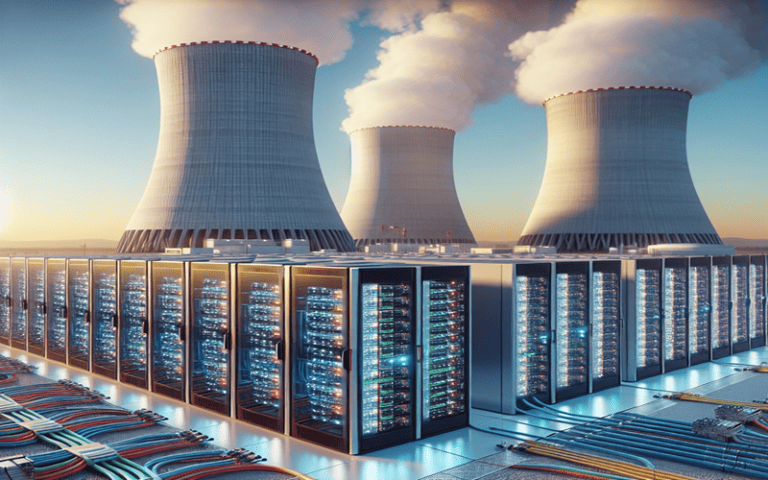Amazon Web Services (AWS) is expanding its data center capacity by inking an acquisition. Notable is that the acquired data center runs on nuclear energy. This form of energy is interesting for data centers and the sustainability of this industry for several reasons.
AWS purchased a data center from energy producer Talen Energy. The building keeps the infrastructure running based on the generated energy from the neighboring nuclear power plant. The acquisition will not change this infrastructure as AWS contracted to take over the power supplies with the acquisition, since the nuclear power plant is also owned by Talen Energy.
A data center consumes a lot of energy. AWS will raise the power supply to 960 megawatts, which amounts to a good share of the nuclear plant’s total output (2.5 gigawatts). The power supply for the data center is equivalent to the average energy consumption of a total of 363 Dutch households per hour. This comparison is based on 2022 figures from Statistics Netherlands.
A carbon-free energy source with one added benefit
AWS is making the acquisition from the perspective of increasing its commitment to carbon-free energy. Sustainability is a major agenda item for the data center industry. Data centers get a lot of political headwinds because of their sky-high water and energy consumption. The Dutch Data Center Association is monitoring the situation in the Netherlands and calculated that 3,700 Gigawatt hours of electricity were delivered to data centers in 2021. That’s a 3.3 percent share of the total power consumption in the Netherlands, according to the association. As more and more data centers are being built in the Netherlands, it is important to keep this share as low as possible.
A carbon-free energy source can contribute something in this context. The energy source will not reduce the consumption in the data center but prevent the generation of the energy from causing additional emissions. Carbon-free energy sources come in different forms. For example, Google plans to run its data centers in the Netherlands mostly on carbon-free energy through wind farms. Nuclear power plants are another form of this energy source.
The data center acquired from AWS has an additional aspect that is important to the sustainable story. Because the data center is located near the nuclear power plant, it is possible to recover the heat produced in the cener. All the servers in the data center create tremendous heat that can be redirected to the nuclear power plant. There, the heat can be useful in the process of nuclear fission.
Also read: Data centers play a pivotal role in sustainability discussion
Will every data center soon have a nuclear power plant?
The choice to address the problem with a nuclear power plant has been getting more attention lately. Some see it as a solution to the additional challenges AI brings to the industry. This technology is skyrocketing the energy consumption of data centers. It presents cloud providers with the challenge of combining the desire for generative AI, which is an issue in the cloud due to a lack of AI PCs, with the desire for cleaner data centers.
Digital Realty, an American company that does construction work for data centers, thinks these desires can only be reconciled with nuclear power. CTO Chris Sharp highly believes this idea and predicts to the BBC that every data center will have its own nuclear reactor. In fact, according to him, this will happen in the foreseeable future. Sharp does not elaborate on why only nuclear power can meet high needs, but cloud players seem to follow this thinking path. Late last year, for example, Microsoft was looking for a program manager to figure out the company’s nuclear strategy.
Ensures continuity
Nuclear power has another aspect that is primarily attractive to cloud providers. This is because the supply has fewer variables on which it depends. Windmills, for example, depend on the weather, and energy production from solar panels also only happens as long as there is daylight. Data centers cannot adapt to that, and servers must also run during the night.
In fact, it is extremely important for data centers to ensure continuity. A power outage prevents companies from using the cloud, and for companies that run programs entirely in the cloud, work must be forced to shut down. This is why some data centers are provided with an emergency generator that runs on oil. Data centers even have contracts in place with local gas stations to keep the emergency generator running if disaster strikes. We saw this with our own eyes in Switzerland during a tour of Green Datacenter AG.
So, the acquisition of AWS is a smart move on several levels. In part, it lies in the sustainability strategy, where heat recovery is an interesting story for both the nuclear power plant and the environment. Moreover, it provides a solution to the increasing energy needs of data centers due to the rise of AI. So, we won’t be surprised to hear more cloud providers make such acquisitions in the coming years.
